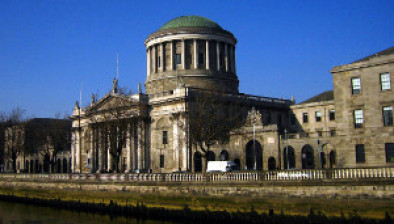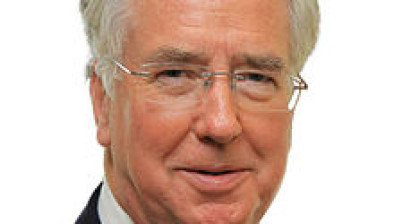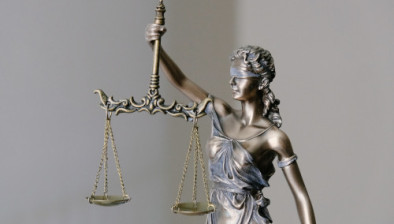High Court: Costs may be awarded against a regulator in professional disciplinary proceedings

Andrew McKeown BL
The High Court has held that the general “costs follow the event” rule applies in regulatory disciplinary matters which come before the courts.

About this case:
- Citation:[2020] IEHC 674
- Judgment:
- Court:High Court
- Judge:Mr Justice Garrett Simons
Background
Mr Justice Garrett Simons addressed the allocation of costs in disciplinary proceedings taken by the Law Society of Ireland against a solicitor. The central issue was whether what is said to have been the previous practice, whereby costs were not normally awarded against a regulator in professional disciplinary proceedings, survived the introduction of the new costs regime under the Legal Services Regulation Act 2015.
Two complaints of professional misconduct were made against a solicitor, Daniel Coleman. The detail of the complaints was set out exhaustively in earlier judgments.
The findings in respect of the first complaint were found to have a “sustainable basis” (in accordance with the principles laid down by the Supreme Court in Law Society of Ireland v Coleman [2018] IESC 80), and Mr Coleman was struck off. The second complaint was not found to have a “sustainable basis”, and the Law Society’s application was dismissed.
Costs of disciplinary proceedings
Mr Justice Simons noted the two schools of though that existed on the issue of costs of disciplinary proceedings, prior to the commencement of the LSRA 2015.
One line of authority held that the general “costs follow the event” rule should not apply to proceedings taken by a regulatory body such as the Law Society, because it pursues disciplinary proceedings in the public interest. The case law expressed a concern that it would have a “chilling effect” on the exercise of the regulatory body’s functions were it to be liable for costs, except in very limited circumstances (per Mr Justice Peter Kelly in Teaching Council of Ireland v M.P. [2018] 3 I.R. 249).
The second line of authority draws a distinction between the costs of first instance proceedings before a disciplinary tribunal, and the costs of any appeal to the courts. Insofar as the latter is concerned, costs follow the event, per Ms Justice Úna Ní Raifeartaigh in Dowling v Bord Altranais agus Cnáimhseachais na hÉireann [2017] IEHC 641, where she held that if the Oireachtas intended to circumscribe the discretion to award costs in respect of such cases, this would have been explicitly stated in the legislation. The judge noted that even in criminal proceedings, prosecutors do not enjoy a general immunity from costs following an acquittal: “There is no prohibition on the awarding of costs against the Director of Public Prosecutions. It is certainly not the case that, where an applicant is successful against the Director in judicial review proceedings, no order for costs is made simply by virtue of the fact that the Director is bona fide discharging public interest functions pursuant to statute.”
Mr Justice Simons held that the general “costs follow the event” rule applies to disciplinary proceedings taken by a regulatory body such as the Law Society. The “starting point is that a solicitor who has entirely succeeded against the Law Society is generally entitled to his or her costs unless the court orders otherwise for stated reason”. A court may depart from this general rule at its discretion, and it may be relevant to have regard to the fact that the Law Society was acting in the public interest and thus may have to take a broader view than a litigant in private law proceedings.
The court found that Mr Coleman was “entirely successful” in resisting the Law Society’s application on the second complaint, in circumstances where the High Court found the findings of misconduct unsustainable. Having considered the criteria under the LSRA 2015 s.169(1), Mr Justice Simons found no reason to depart from the default position. This was not a case where the Law Society was forced to make an urgent application to court seeking interim relief, and it had been a considered application.
The judge said that weight should also be attached to the responsible manner in which the proceedings were conducted by counsel and solicitor representing Mr Coleman. Paul Comiskey O’Keeffe BL, instructed by John P. O’Donohoe Solicitors, “presented his client’s case forcefully but fairly. In particular, counsel discharged his obligations to his client and to the court in a thoroughly professional manner”.
Mr Coleman had not insisted on a resumption of the oral hearing, as would have been his entitlement, following the logistical difficulties presented by covid-related restrictions, a “very reasonable approach” which resulted in a saving in costs for both sides.
Conclusion
Mr Coleman was entitled to his costs in respect of one of the Law Society’s two applications. The Law Society was entitled to its costs in respect of the other of the two applications, where it was “entirely successful”. The judge said that these two costs orders should be set off against each other, with the net result that each side should bear its own costs, as the time dedicated to each individual application was broadly equal.









